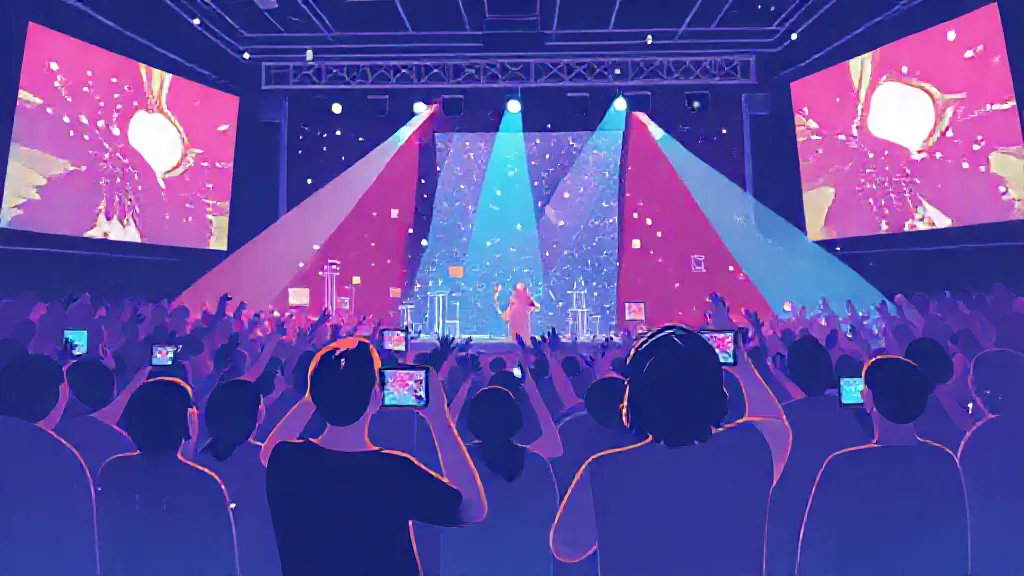Augmented Reality (AR) is rapidly transforming the entertainment landscape, offering immersive experiences that blend digital content with the real world. This technology enhances the way audiences interact with various forms of entertainment, from video games to live events, creating engaging and interactive experiences. As AR continues to evolve, it is essential to understand its implications for the entertainment industry and how it can reshape consumer engagement.
The Emergence of Augmented Reality in Entertainment
The roots of augmented reality can be traced back to the 1960s when computer scientist Ivan Sutherland developed the first head-mounted display system. However, it wasn't until the advent of smartphones and advancements in computer vision that AR began to gain traction in entertainment. The launch of Pokémon GO in 2016 marked a significant milestone, introducing millions to AR by allowing players to catch virtual creatures in real-world settings.
This success demonstrated the potential of AR to create engaging experiences that captivate audiences.
Enhancing Gaming Experiences with AR
The gaming industry has been at the forefront of AR adoption, utilizing the technology to create immersive gameplay. Titles like Pokémon GO and Harry Potter: Wizards Unite have shown how AR can enhance traditional gaming by encouraging players to explore their surroundings.
By merging the digital and physical worlds, these games promote physical activity and social interaction, transforming gaming from a solitary experience into a communal event. As AR technology advances, we can expect even more innovative gameplay mechanics that leverage real-world environments.
Augmented Reality in Live Events and Concerts
AR is also making waves in live events and concerts, offering audiences an enhanced experience.
Artists like Travis Scott have utilized AR during performances, creating stunning visual effects that interact with the audience. These immersive experiences increase audience engagement and allow fans to feel more connected to the performance. Furthermore, AR can provide additional content, such as behind-the-scenes footage or interactive elements that enhance the overall experience, making live events more memorable.
The Role of AR in Film and Television
In the realm of film and television, AR is changing how stories are told and experienced. Productions can incorporate AR elements to create interactive narratives, allowing viewers to engage with the content in new ways. For example, shows like Stranger Things have experimented with AR apps that provide additional context and interactive elements, deepening viewer engagement.
As AR technology becomes more accessible, filmmakers may increasingly utilize it to create unique storytelling experiences that captivate audiences.
Social Media and AR: A New Frontier
Social media platforms are also embracing AR, providing users with tools to create and share augmented content. Snapchat and Instagram have popularized AR filters, allowing users to overlay digital effects on their photos and videos.
This trend has not only enhanced personal expression but has also opened new avenues for brand engagement and marketing. As influencers and brands leverage AR to create interactive campaigns, the lines between entertainment and advertising continue to blur.
Challenges and Limitations of AR in Entertainment
Despite its potential, the integration of AR into entertainment is not without challenges.
Technical limitations, such as the need for high-quality graphics and stable tracking, can hinder the user experience. Moreover, concerns regarding privacy and data security arise as AR applications often require access to user locations and personal information. Addressing these challenges will be crucial for the widespread adoption of AR in entertainment, ensuring that it enhances rather than detracts from the experience.
The Future of Augmented Reality in Entertainment
Looking ahead, the future of AR in entertainment appears promising. As technology continues to advance, we can expect more sophisticated AR experiences that blur the lines between reality and fiction. The growth of 5G networks will facilitate faster data transfer, enabling richer and more complex AR applications.
Furthermore, as AR hardware becomes more affordable and accessible, a broader range of creators and developers will be able to contribute to the AR ecosystem, leading to diverse and innovative entertainment experiences.
Conclusion: Embracing the Augmented Reality Revolution
In conclusion, augmented reality is poised to revolutionize the entertainment industry by enhancing user engagement and creating immersive experiences. As AR technology continues to evolve, it will reshape how audiences interact with games, films, live events, and social media.
Embracing this technology will not only enrich the entertainment landscape but also create new opportunities for storytelling and audience connection in an increasingly digital world.
